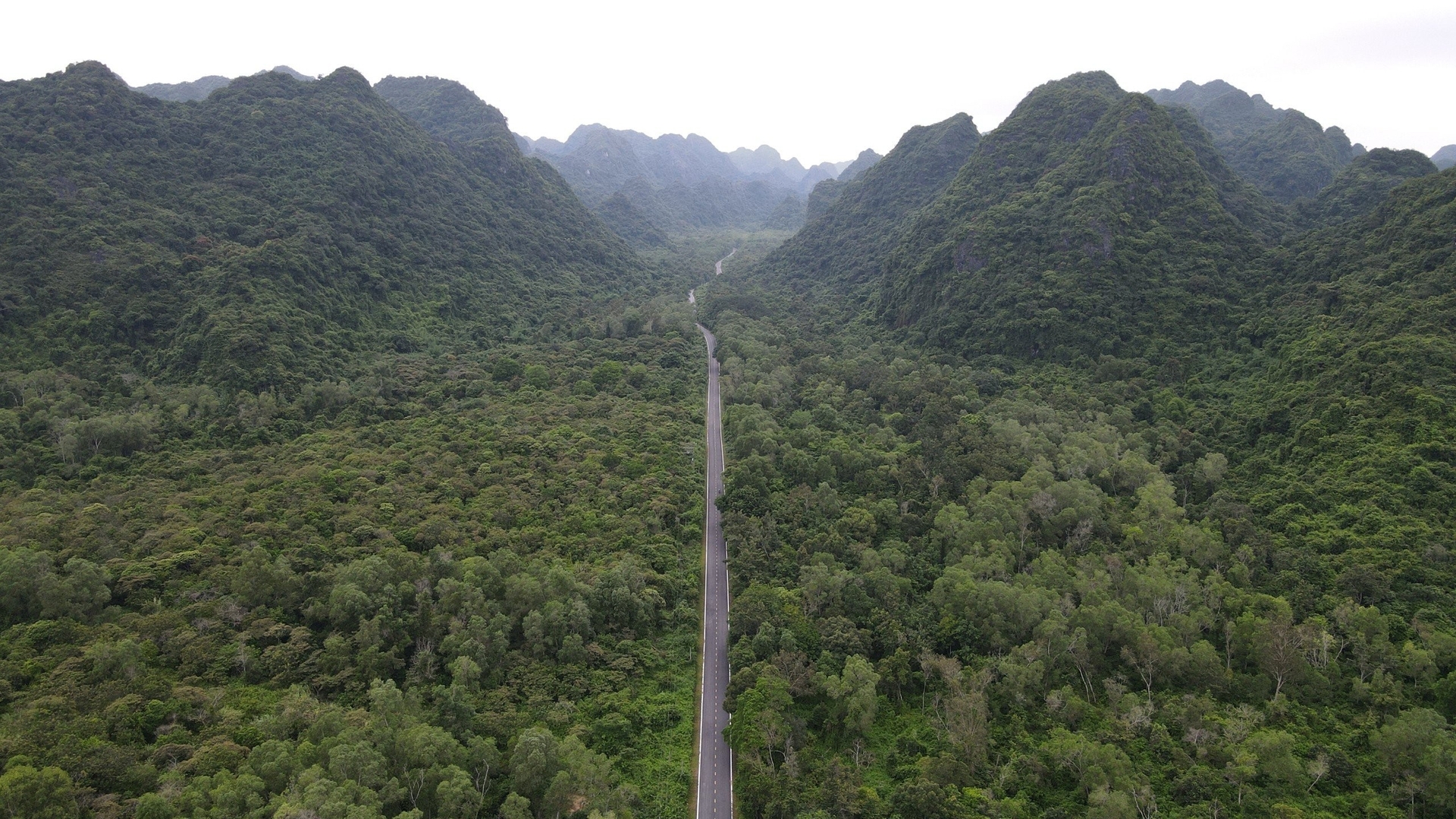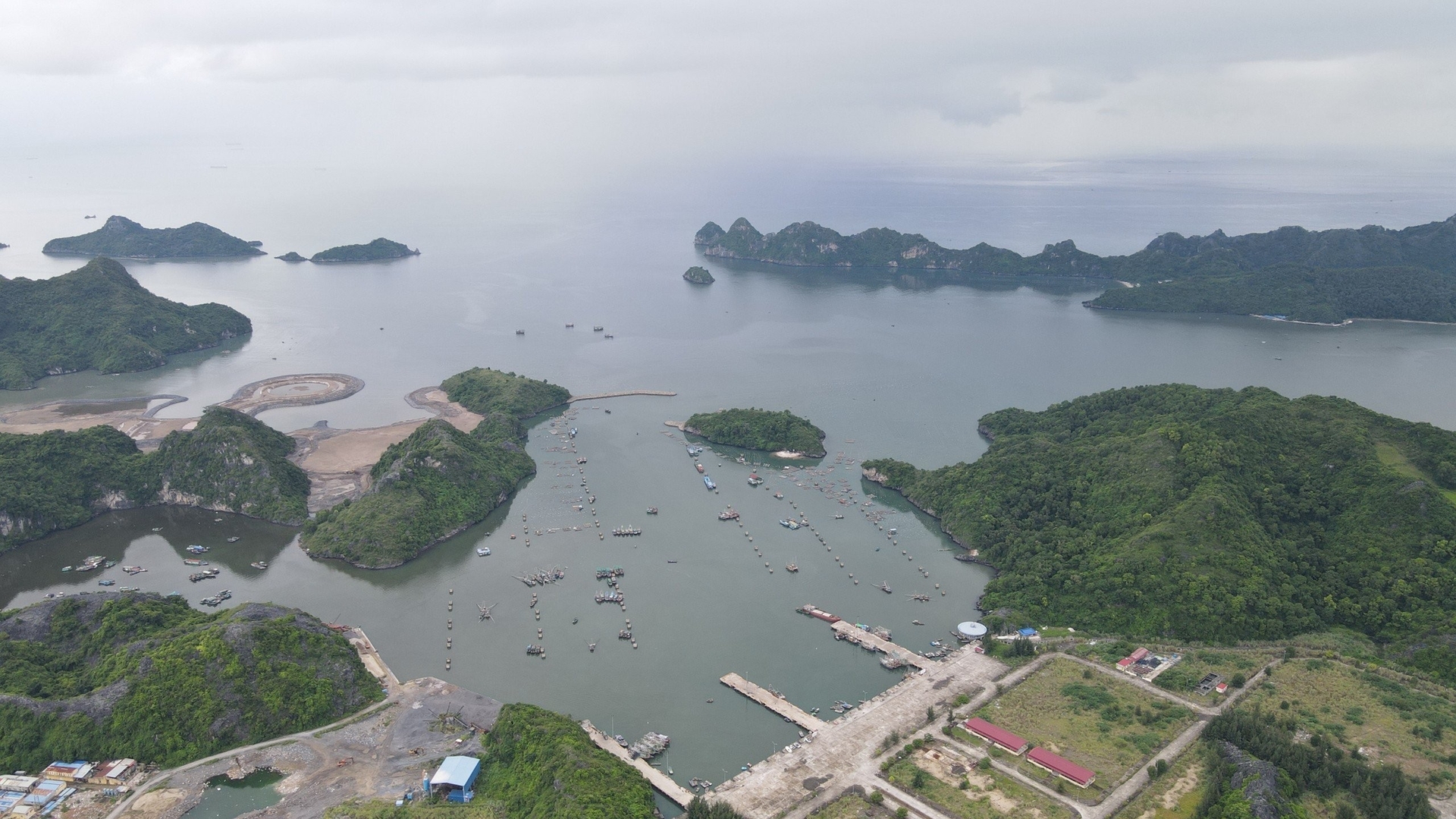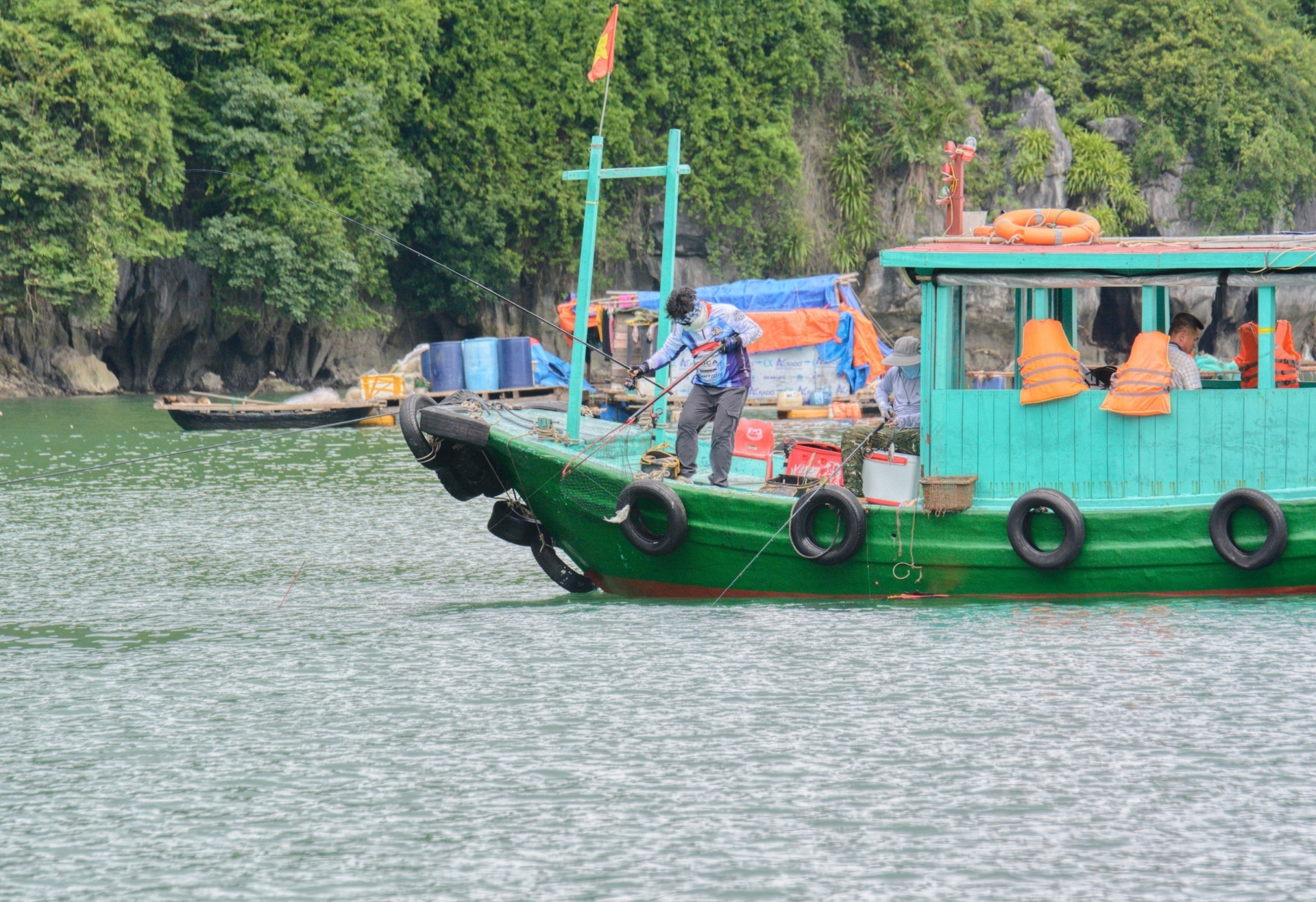June 19, 2025 | 04:11 GMT +7
June 19, 2025 | 04:11 GMT +7
Hotline: 0913.378.918
June 19, 2025 | 04:11 GMT +7
Hotline: 0913.378.918
Green growth is based on the process of changing the growth model, restructuring the economy to take advantage of comparative advantages, improving efficiency and competitiveness of the economy through research and advanced technology, developing modern infrastructure systems to effectively use natural resources, reduce greenhouse gas emissions and respond to climate change, thereby contributing to hunger eradication and poverty reduction while at the same time creating a driving force for sustainable economic growth.

Vietnam strives towards sustainable green growth. Photo: VAN.
The path of green growth, especially in agriculture, requires cooperation and sacrifices, and even these factors change with time. The impact of green growth on agriculture and the contributions of agriculture to green growth are closely related. Overall, the main impacts and conflicts of green growth on agriculture cut across and are based on the different pillars of sustainable development (economy, environment and society).
In the short term, green growth policies that prioritize environmental protection may limit agricultural output, reduce global food security, and lead to adjustments in the use of human, financial, and natural resources. The significance of green growth for agriculture in the long term is the mutual reinforcement in terms of environmental sustainability, economic growth and social welfare. The final outcome will depend on the policy instruments and the structural adjustment measures adopted to facilitate the transition to a greener agriculture sector.
Economy
Green growth will meet certain risks if agriculture fails to provide enough food, animal feed and dietary fiber for the growing global population. Although agriculture accounts for less than 2% of GDP and less than 6% of employment in countries belonging to the Organization for Economic Co-operation and Development (OECD), this industry still proves to be vital for the population.
In many developing countries, agriculture plays a central economic role, accounting for 30% of GDP and two-thirds of employment. Since it is predicted that global food production will need to increase by 70% to feed the world's population by 2050, greater economic efficiency and productivity in agriculture are needed.
Green growth depends on investment in the agricultural sector and the viability of farms in OECD and non-OECD countries to ensure future food production. It is necessary to increase private investment in agricultural production and infrastructure services by 50% in order to increase output in developing countries, in which the role of public investment is extremely crucial especially in transportation, irrigation, electricity and human resource training. Advances in agricultural technology will help increase productivity in most countries, but it should be noted that new technology must be affordable, adapt to alternative farming systems and aim to protect the environment.
Environment
Agriculture provides many environmental and ecosystem-related services that are essential for green growth, including reducing greenhouse gas emissions through carbon sequestration. Although direct greenhouse gas emissions from agriculture account for 10% - 12% of total emissions, the agricultural sector has the potential to offset emissions from other sectors.
Increasing atmospheric CO2 removal through soil and vegetation carbon sequestration in agriculture has the potential to offset up to 20% of global fossil fuel emissions. However, this depends on enhanced soil management and farming as carbon sequestered in soil can be released back into the atmosphere through inappropriate farming practices.

Developing forests to better the environment is Vietnam’s direction for sustainability. Photo: VAN.
Since agriculture accounts for 37% of total land use (68% if forest land use is included), the sector plays an important role in preserving the ecosystems that underpin green growth. Agriculture impacts the natural environment by managing land and water resources, protecting habitats, controlling floods, maintaining biodiversity, and shaping landscapes.
Agricultural land management is a positive driver for the development of crop varieties, animal habitats, forests and wetlands. Efforts to value the environmental services provided by agriculture highlight the sector’s growing ecological and economic importance.
Society
Green growth is not possible without global food security. The world population is expected to increase by 2.3 billion people between 2010 and 2050, mainly in developing countries. While malnutrition rates are expected to fall from 17% of the population in developing countries today to 11% by 2015 thanks to poverty reduction, progress in reducing the overall number of malnourished people is much slower as it depends on improved agricultural productivity and more equitable access to food supplies.

Agriculture associated with community tourism is contributing to reducing poverty in rural areas. Photo: VAN.
Agricultural growth, through its leverage on the rest of the economy, can help poor countries, regions and households increase employment and income. In order to narrow the rural-urban income gap and reduce rural poverty, agriculture can facilitate rural people’s access to broader economic development by creating a key link with green growth.
Translated by Samuel Pham
/2025/06/17/3942-2-143243_548.jpg)
(VAN) Recently, in Sweden, the Secretary of the Binh Dinh Provincial Party Committee presented the Investment Registration Certificate for the 'Polyester Fabric Recycling Complex' project to SYRE Impact-AB Company.
/2025/06/12/3721-2-202745_83.jpg)
(VAN) TH made an impression at Seoul Food 2025 with its line of natural beverages, paving the way for Vietnamese food products to enter the South Korean market.

(VAN) Soc Trang's success in rice exports stems from a strategy of developing fragrant and specialty rice cultivation areas and standardizing production toward low-emission practices.
/2025/06/11/1311-5-120811_839.jpg)
(VAN) The pig farming industry is facing the challenge of comprehensive restructuring to meet requirements for quality, safety, traceability, and market expansion both domestically and for export.

(VAN) Vietnam considers participating in ALGROALBA in order to expand agricultural production, coordinate the assessment and effective exploitation potential land.
/2025/06/05/5314-1-184727_407.jpg)
(VAN) From seemingly worthless fish scales and skin, enzymes and lactic ferments can transform by-products into peptides, opening a sustainable, effective business direction and elevating Vietnamese seafood.

(VAN) TTC AgriS and IFC signed a strategic partnership to develop a sustainable agricultural value chain, aiming to achieve the Net Zero target by 2035.